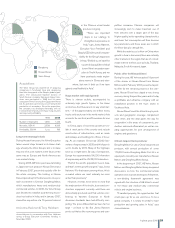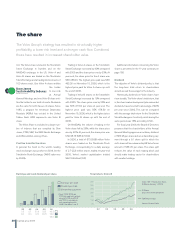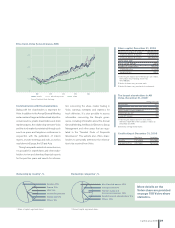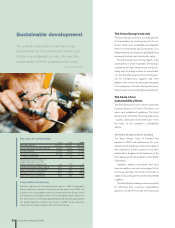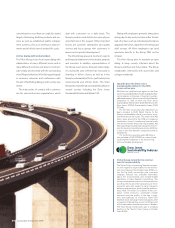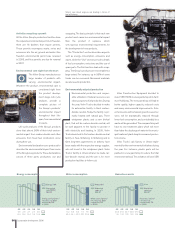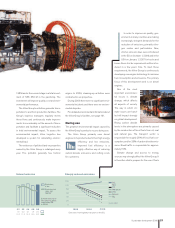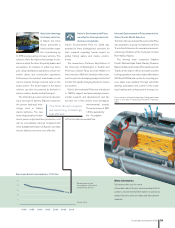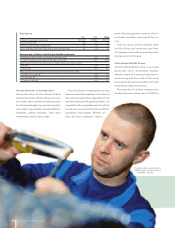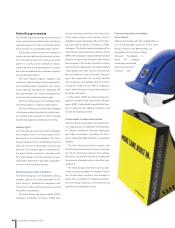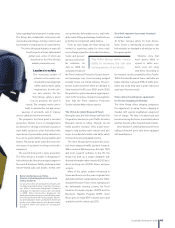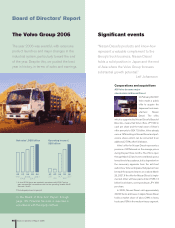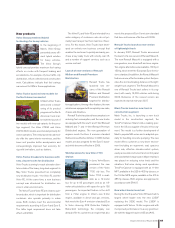Volvo 2006 Annual Report Download - page 43
Download and view the complete annual report
Please find page 43 of the 2006 Volvo annual report below. You can navigate through the pages in the report by either clicking on the pages listed below, or by using the keyword search tool below to find specific information within the annual report.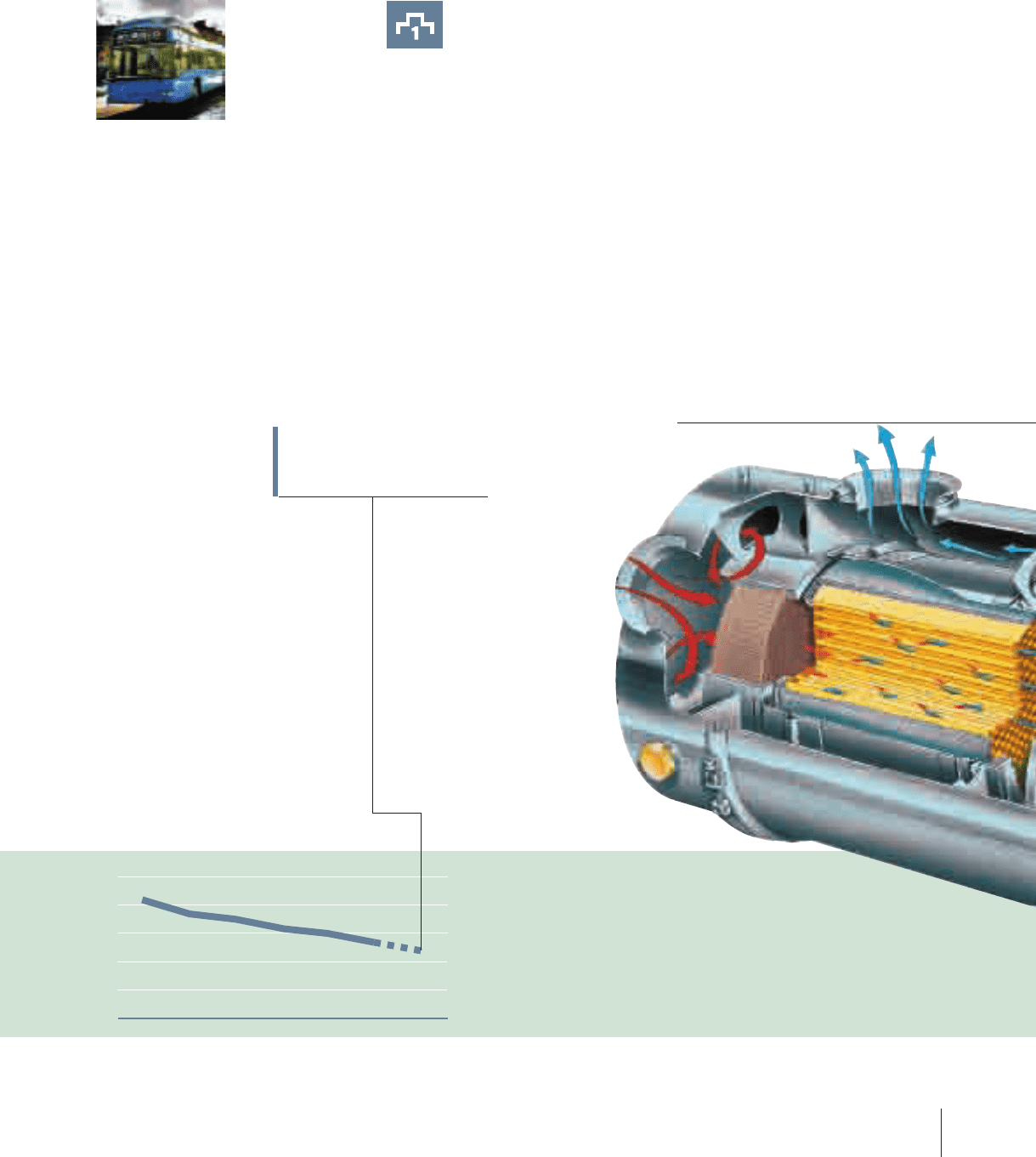
Hybrid technology
for heavy vehicles
In March, the Volvo
Group presented a
hybrid solution capa-
ble of producing up
to 35% energy savings in heavy vehicles. This
solution offers the highest fuel savings in situ-
ations in which the driver frequently brakes and
accelerates, for instance in urban bus trans-
port, urban distribution operations, refuse-col-
lection duties and construction operations.
Furthermore, the vehicle’s maintenance costs
can be lowered through reduced wear on the
brake system. The diesel engine in the hybrid
solution can also be powered by biofuels to
achieve carbon-dioxide neutral transport.
The Volvo Group is also involved in develop-
ing a new type of battery, Effpower, based on
the proven lead-acid tech-
nology used in today’s
starter batteries. The new
technology doubles the bat-
teries’ power output and their production cost
can be considerably reduced compared with
other available alternatives. Effpower can make
electric hybrids even more cost-effective.
More information
Visit www.volvo.com for more
information about Volvo’s environmental efforts:
policies, environmental information on products
and production, emission laws and educational
material.
Cross-section of a particulate trap. Using particulate
traps is one way of reducing emissions of particu-
lates.
Volvo’s Environmental Prize
awarded to three pioneers in
marine ecosystems
Volvo’s Environmental Prize for 2006 was
awarded to three distinguished scientists for
their research regarding human impact on
global fishing waters and marine environ-
ments.
The researchers, Professor Ray Hilborn of
the University of Washington in Seattle and
Professors Daniel Pauly and Carl Walters of
the University of British Columbia in Vancouver,
won the prize for developing analysis tools that
monitor the rapidly changing threats to marine
ecosystems.
Volvo’s Environmental Prize was introduced
in 1988 to support and acknowledge environ-
mental research and development, and has
become one of the world’s most prestigious
environmental awards.
The prize money of SEK
1.5 M is aw arded by
the Foundation
of The Volvo Environmental Prize.
1980 1985 1990 1995 20002005 2010
0
Source: Volvo
10
20
30
40
50
Development of fuel
consumption, Volvo truck
model FH12, 40 tons.
Decreased fuel consumption, l/100 km
The Volvo Group’s engines
are becoming increasingly
fuel efficient.
Internal Environmental Prize awarded to
Volvo Trucks North America
The Volvo Group’s Internal Environmental Prize
was awarded to a group of employees at Volvo
Trucks North America for several environment-
enhancing initiatives at the truck plant in New
River Valley, Virginia.
The winning team comprised Stephen
Pierett, Michael Kijak, Frank Stanley, Channon
Maycock, Danny Arnold and Thomas Newcomb.
Thanks to the team’s efforts, the water used for
testing operations was reduced by half between
2003 and 2005 and a system for recycling pro-
cess water was installed. Through automatic
lighting, automation and control of the build-
ing’s heating and cooling system, energy con-
Sustainable development 2006 39


